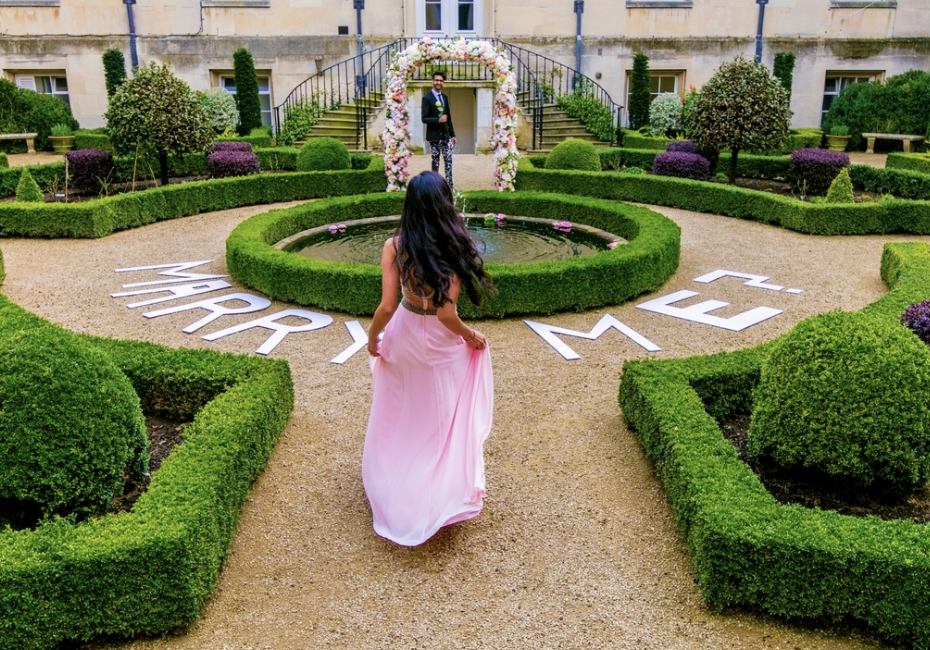Should I become a Proposal Planner vs. a Wedding Planner? The 3 main differences between the two jobs!

Both wedding planning and proposal planning are incredible jobs to have - at the core of the two is the creation of a once-in-a-lifetime moment for a beautiful couple!
A wedding planner and a proposal planner have distinct roles, although both operating within the event planning industry. While the two businesses share some similarities the positions on the day-to-day can vary significantly.
So if you are thinking about setting up your own proposal planning company (it is a fabulous option for those starting out) or already work in the industry planning beautiful weddings and other events (but want to expand your offerings) here are the 3 main points to consider before taking the next steps:

Clients
Proposal client interaction is very different from wedding planning client interaction. Whereas for weddings, a planner would typically liaise with both bride and groom and often (of course not always!) the bride may be the one honing in on the many details involved in planning a wedding. Proposal clients typically keep the other party in the dark to maintain the element of surprise. Therefore you would be organising alongside one partner without getting to know the other until the proposal takes place. At The Proposers all are welcomed and we love same-sex proposals, women to men proposals etc. with that being said, the largest part of our clientele are typically men, likely due to history of tradition.
While you may only be corresponding with one party as a proposal planner, there is still an opportunity to learn about the relationship as no two couple's are the same. Therefore during the consultation process it is critical to ask many questions about the love story at the forefront, for example - how the two met, favourite memories together etc. so you can then come up with ideas to make the marriage proposal extra magical and meaningful.

Timings
Wedding planners typically work with clients for a year or more to plan the festivities. This gives plenty of time to hone in on all the components necessary to make the day a success and also forge a strong relationship between the clients and planner.
A proposal planners planning timeline is very different to that of a wedding planner as clients may reach out at all stages of the proposal process. Sometimes it may be before they purchase a ring, in which case you will have up to a few months to come up with a full brief potentially. Other times it may be that they have just received the ring from the jewellers and have realised they need help with how to ask. Then a proposal will need to be organised typically within a week or a few days.
Therefore as a proposal planner it is necessary for you to be able to organise well under pressure and dream up an event with a quick turnaround.

Scope of work
In some ways the scope of work for both wedding planners and proposal planners is similar. Both require the handling of venue selection, supplier sourcing (such as photographers, musicians etc.), budgeting, creating a plan for the day and overseeing it all as it comes together.
However for weddings you are often coordinating with many guests in mind therefore there are more logistics at play while with proposal planning you are looking to organise for just 2. Whilst weddings often are a full day celebration, proposals typically are shorter at just a few hours long. In addition, while weddings typically involve many traditions and there is often an expected timeline, with proposals as it is just the couple they can have the event exactly as they dream it and throw out the 'rule book' as to how to enjoy the celebration.
Therefore (depending on brief as you can have some EPIC and large scale proposal productions), usually proposal planning is a smaller scale event you need to coordinate for but often with more creativity as to where to hold the occasion, how to experience it etc.

Summary
Both proposal planners and wedding planners play crucial roles in creating unforgettable moment in a relationship journey, but vary significantly when it comes to the day-to-day work in terms of who the clients they cater to are, timelines involved and the scope of events created, all points to consider when taking next steps in your own event business journey.

